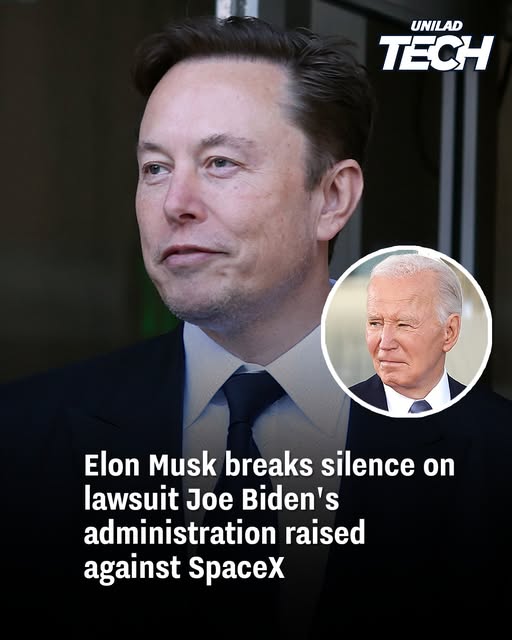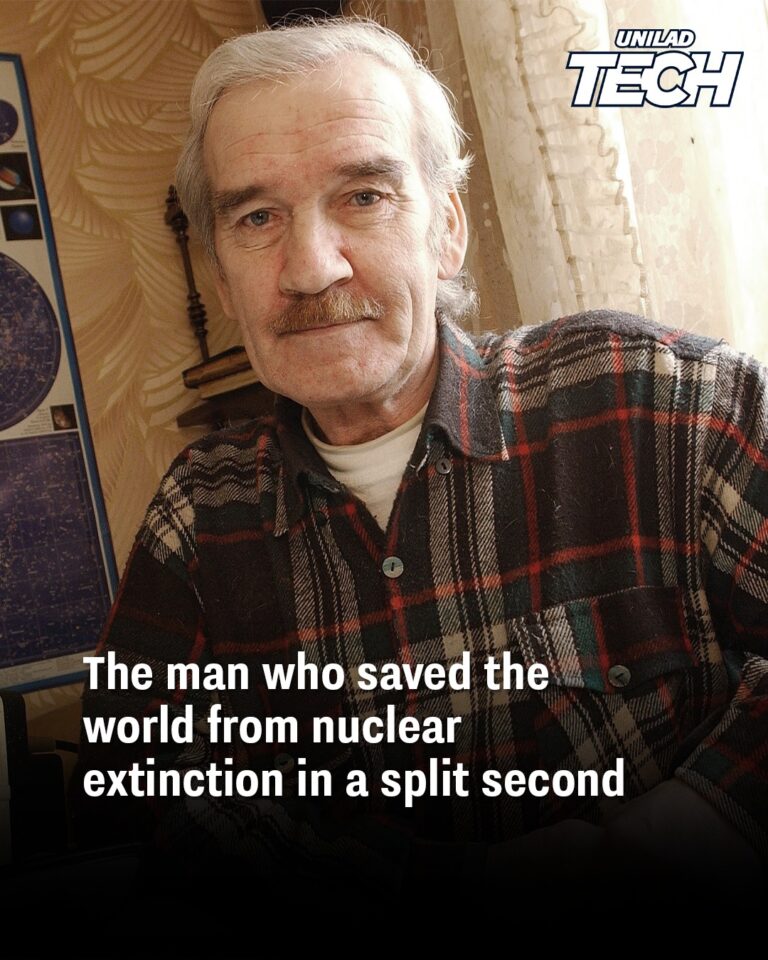Tesla rival unveils world’s first electric vehicle that can fill up as fast as a tank of gas
The Chinese automaker has taken over Tesla as the world’s largest EV manufacturer

A rival to Tesla has unveiled a car that could completely change the electric vehicle industry.

In a world-first, the vehicle is able to fill up on power as fast as a tank of gas.
It looks like the Chinese automaker could be giving Elon Musk a run for his money.
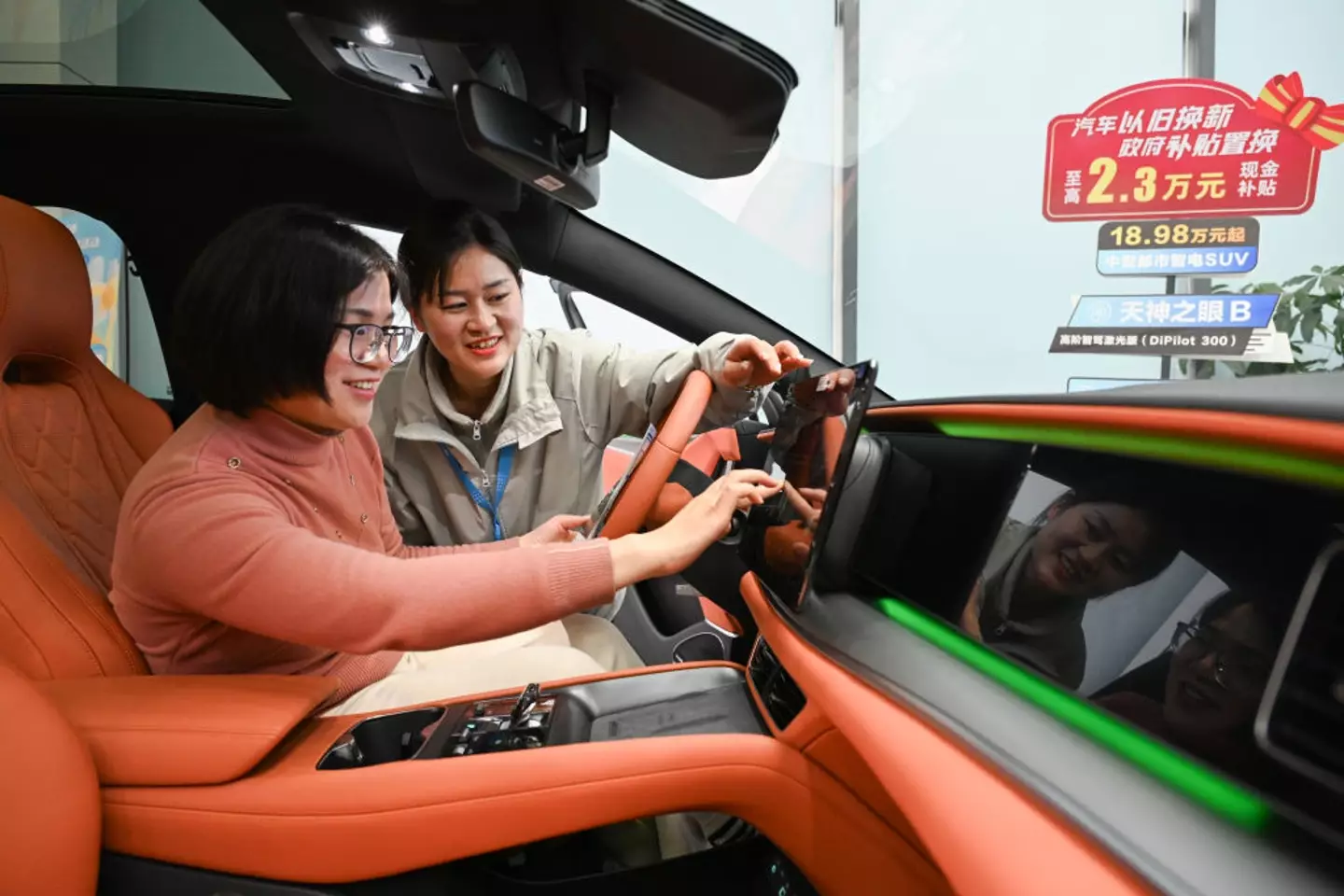

BYD has taken over Tesla as the world’s largest EV manufacturer (CFOTO/Future Publishing via Getty Images)
BYD is a car firm that has unveiled its new battery for electric vehicles that is able to charge up a car in around the same amount of time that it takes to fill up a tank of gas.
Named the Super E-Platform, the battery is four times faster than Tesla Superchargers, charging at a speed of 1,000 kW compared with Tesla’s 250 kW.
This means that with the BYD battery, you can clock up another 249 miles worth of charge in just five minutes.
The company revealed in a live stream from its headquarters in Shenzhen, China, that mass production of the new battery will ‘completely solve users’ range anxiety when traveling’.
While the super quick charging system will only be available to customers in China at first, it’s hoped that a global rollout will follow.
And demand for BYD is growing as it took Tesla’s crown as the world’s largest EV manufacturer last year despite not yet having a presence in the US.
According to data from the International Energy Agency (IEA), electric vehicles made up 18% of all of the new cars that were sold around the world in 2023.
This figure is up from the year previous, which was 14%.
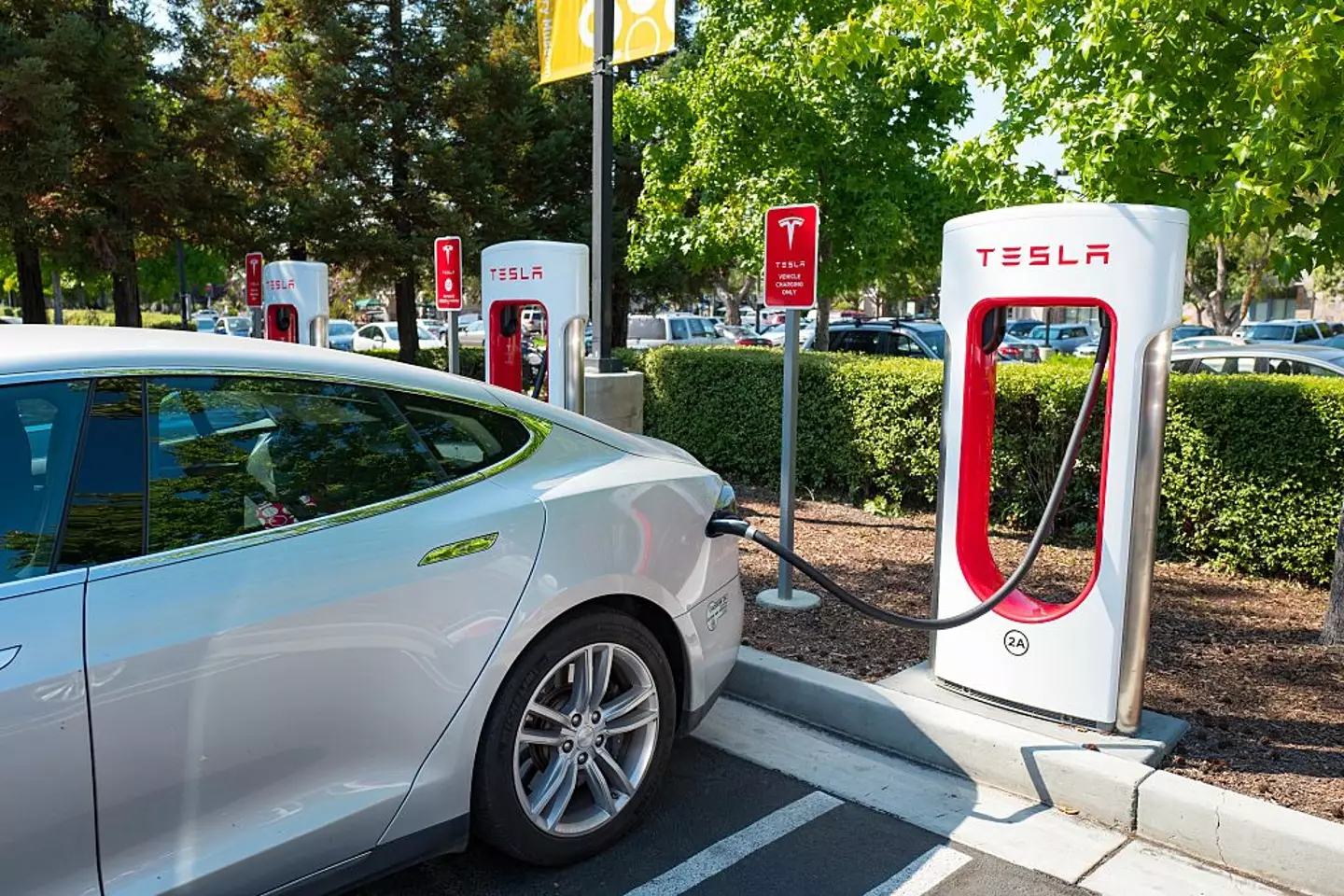

Tesla shares have taken a hit in recent weeks (Smith Collection/Gado/Getty Images)
During BYD’s live stream, the firm’s founder, Wang Chuanfu, revealed that the company’s new Han L and Tang L models are likely to start at around $40,000.
Tesla has seen its shares plummet as Musk continues to be in the center of controversy over his involvement with the Trump administration.
Last month, Tesla shareholders demanded that the CEO share ‘five things he’s done for them this week’.
The jibe appeared to use Musk’s own words against him as it referenced a controversial email sent out by the Department of Government Efficiency (DOGE) which demanded federal employees justify their paychecks.
In a post published on X, formerly Twitter, on February 26, one investor shared a graph which shows the poor performance of Tesla stock in recent weeks.
The user wrote: “Please share 5 things you did for $TSLA shareholders this week. Or are you working remotely? Asking for all of us.”Featured Image Credit: CFOTO/Future Publishing via Getty Images


Published 11:48 14 Mar 2025 GMT
Elon Musk’s Tesla has stark warning about tariffs in ‘bombshell’ letter to Trump admin
The EV company has warned about the harms of rival nation tariffs

Harry Boulton
A fork in the road appears to have formed for Elon Musk’s Tesla, as the electric vehicle manufacturer has issued a stark warning to Trump’s trade administration regarding the harm tariffs could do to the company.
It would be hard to argue against the fact that Donald Trump’s victory in the 2024 US election has been incredibly beneficial for Elon Musk as an individual and Tesla as a company, as both saw their values increase dramatically in the months immediately following last November.
Musk’s increased power within the government, while incredibly controversial, has raised his profile significantly and also given him a close and incredibly powerful ally in the president.
While Tesla has seen it’s first sales decline in nearly a decade and continues to lose value on the stock market in recent weeks, the car company retains strong support from President Trump, shown best in a bizarre publicity stunt outside the White House where Trump claimed he would buy a ‘brand new Tesla’ and that vandalism towards Tesla dealerships will be classified as ‘domestic terrorism’.
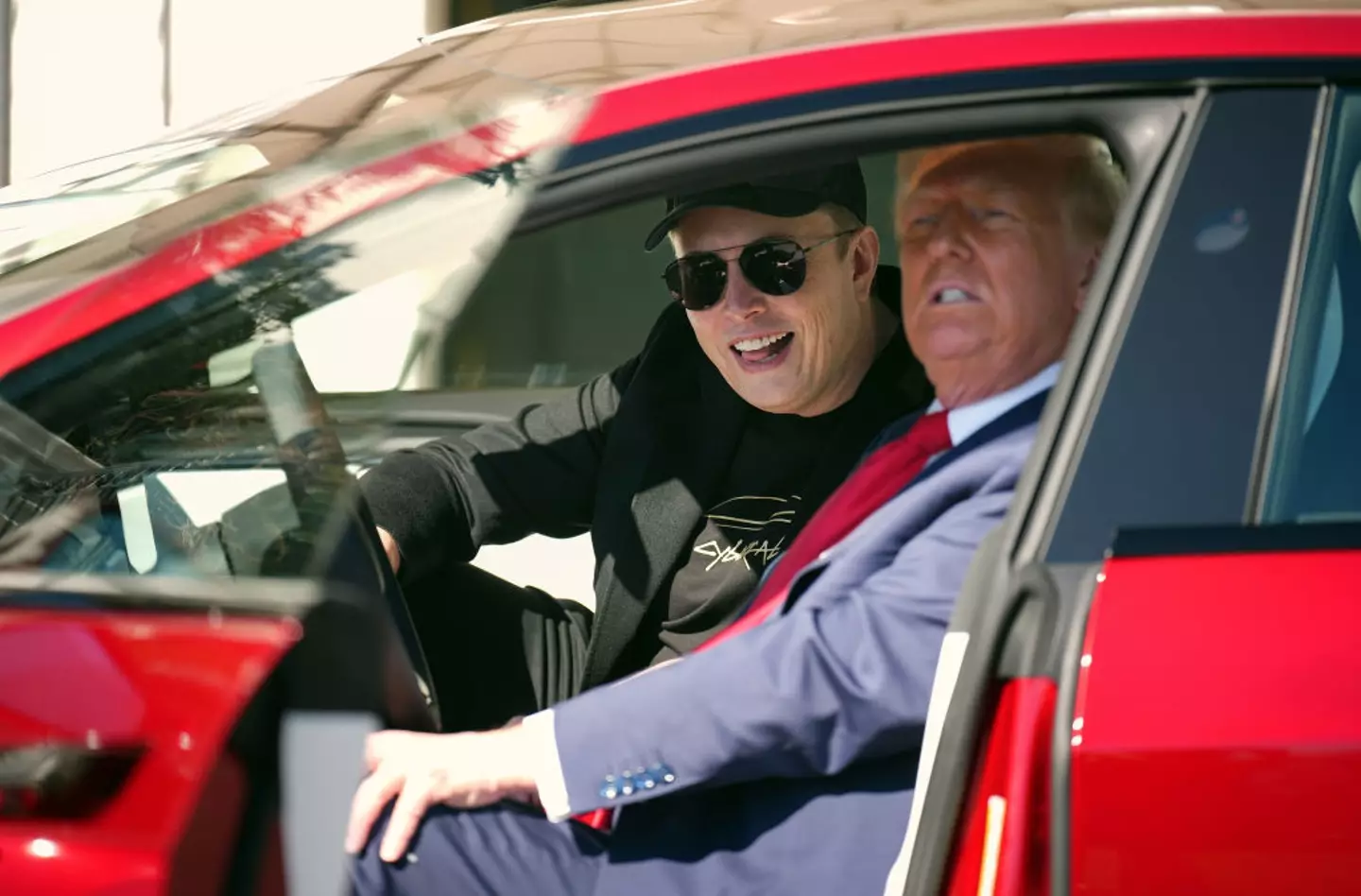

Musk’s close relationship with Tesla proved to be incredibly beneficial in the months following the election (Andrew Harnik/Getty Images)
In a shocking contradiction of this confidence, however, company representatives from Tesla have written a letter to US Trade Representative Jamieson Greer regarding the harmful impact of President Trump’s tariffs on the vehicle company’s international exports, as reported by CNN.
“As a U.S. manufacturer and exporter,” the letter illustrates, “Tesla encourages USTR to consider the downstream impacts of certain proposed actions taken to address unfair trade practices.
“While Tesla recognizes and supports the importance of fair trade, the assessment undertaken by USTR of potential actions to rectify unfair trade should also take into account exports from the United States.”
This comes at a time where the Trump administration’s aggressive trade policies involving tariffs open the door up for retaliatory actions by targeted countries, which would in turn harm the exported sales of Tesla vehicles outside of the United States.
Further CNN reports indicate that Tesla sales are already down around 45% in Europe during the month of January, so further tariffs which would either increase the price for the consumer or incur additional costs for Tesla would stand to lose the company more money.
The letter also outlined that the Trade Representative should consider the “limitations in the domestic supply chain,” making reference to the necessity of important key components such as lithium-ion batteries for electric vehicle production.
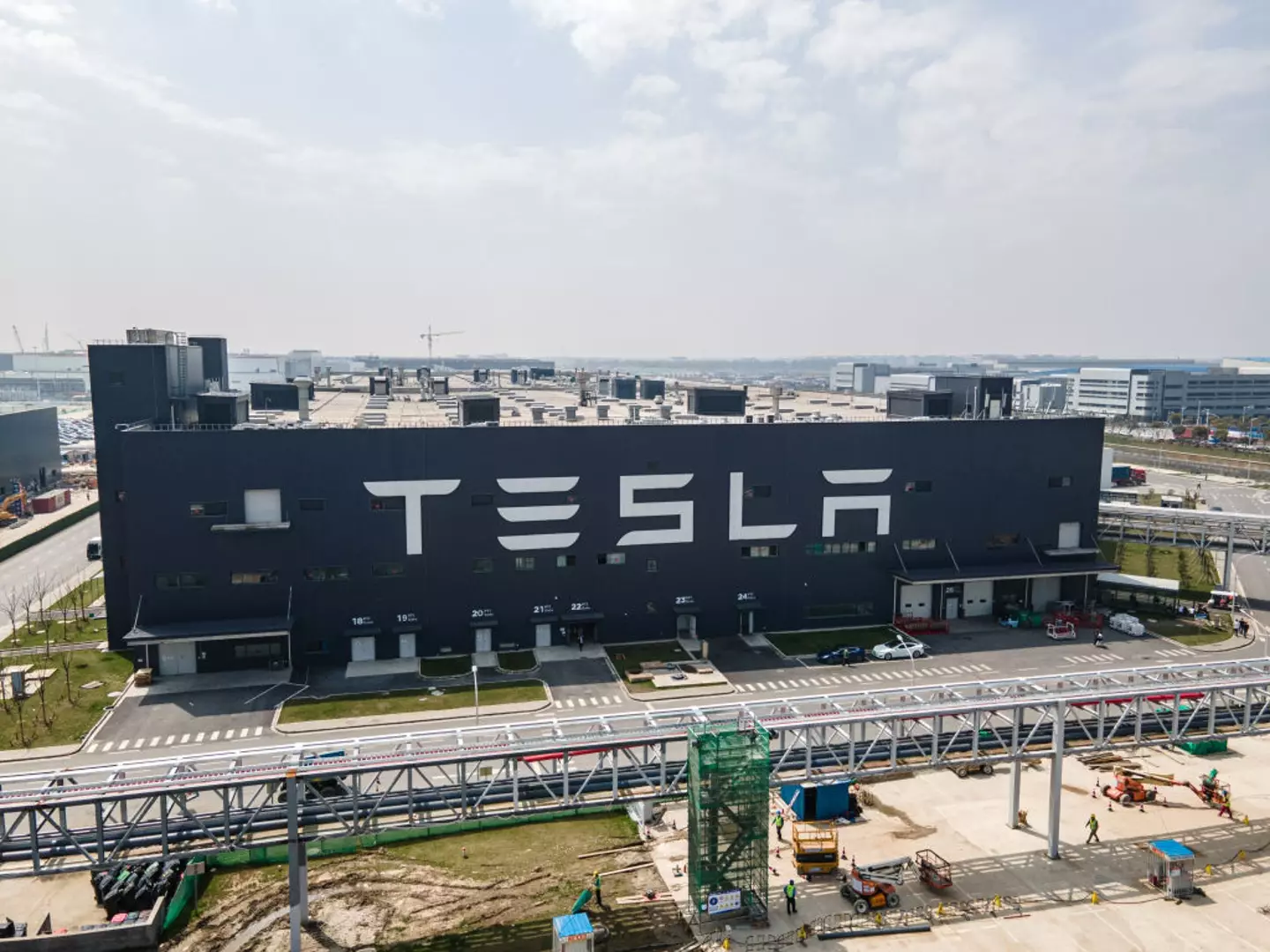

Tesla argues that it still relies on imports of key components for their electric vehicles (Xiaolu Chu/Getty Images)
While Tesla themselves do have some factories within the US capable of producing lithium-ion batteries and other key parts, the company likely still relies heavily on imports from countries like China, who have been hit heavily by tariffs from the US government.
China is also Tesla’s second largest market, as per Reuters, delivering record sales in 2024 with 36.7% of all vehicle sales made in the country, so any retaliatory tariffs from the Chinese government on EVs would significant harm their profits – especially as the market has grown increasingly competitive with offerings from rivals like Xiaomi and BYD, reported by the New York Times.Featured Image Credit: SAUL LOEB / Contributor / Getty

